The Keys to WhatsApp’s Whirlwind Success
Iconische producten aflevering 005
WhatsApp has had a unique, and somewhat unlikely, rise to mobile messenger fame. 🚀
Founded in 2009 and famously acquired by Facebook in 2014 for $19 billion, WhatsApp boasts more than 1.5 billion monthly active users worldwide (as of December 2017) — making it far and away the most widely used mobile messenger app in the world.
Even Facebook CEO Mark Zuckerberg once said on a conference call in regards to WhatsApp’s growth, “No one in the history of the world has done anything like that.”
Wat maakt WhatsApp zo speciaal? Wat heeft dit product zo populair gemaakt?
Let’s explore further! 🕵
WhatsApp builds a product, not a company
The idea for WhatsApp stemmed from co-founder Jan Koum’s annoyance of missing phone calls at the gym. Because of this, he and co-founder Brian Acton then decided to build an app that could let their friends know of their “status” when they were unavailable.
As Koum once explained it, “We didn’t set out to build a company. We just wanted to build a product that people used.”
The beauty of WhatsApp is its single-minded product focus. It’s a simple platform that is well-built and reliable, all while maintaining the privacy of the users. 🔐
WhatsApp’s priority from early on was to create a clean, lightning fast communications service that works flawlessly.
Although the app didn’t take off right away, they later added the messaging aspect of the product and it started to gain traction.
And gain traction it did: it’s estimated that more than 1 million new users join WhatsApp and 55 billion messages are sent on the platform every day. 😱
Bovendien delen gebruikers ook nog eens 4,5 miljard foto's en een miljard video's per dag.

In tegenstelling tot de meeste startups werd deze groei bereikt zonder enige marketing. En ondanks deze waanzinnige cijfers werkt WhatsApp nog steeds met minder dan 100 werknemers (afgezien van de middelen die Facebook nu aan hen toewijst).
From day one, WhatsApp has focused on making the best messaging app possible — every feature and improvement that has followed has been with this goal in mind.
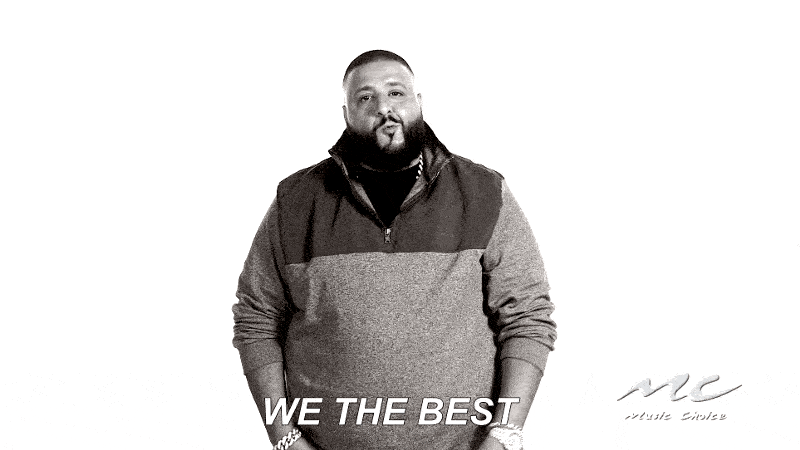
As Koum once pointed out, “WhatsApp’s extremely high user engagement and rapid growth are driven by the simple, powerful and instantaneous messaging capabilities we provide.”
The co-founders also haven’t been ones for fame and attention. Koum and Acton wanted a different company from the beginning — they didn’t even have a sign outside their office door.
In an interview with Wired, Acton said, “We’re the most atypical Silicon Valley company you’ll come across. We were founded by thirtysomethings; we focused on business sustainability and revenue rather than getting big fast; we’ve been incognito almost all the time; we’re mobile first; and we’re global first.” 🌎
Een reclamevrije ervaring
As WhatsApp does not store users’ messages and uses end-to-end encryption, it has never placed advertisements within the interface.
Daar zijn een paar redenen voor.
First, they didn’t want to make the user the product. They wanted to build a service that people wanted to use because it worked. They didn’t want to take user data and turn it into targeted ads.
As they don’t store messages in order to maintain the privacy of the user, they negate the ability for companies to pay for targeted ads on the platform (this is true as well vice versa).
Second, they felt that they didn’t want to have people try to avoid ads in the app.
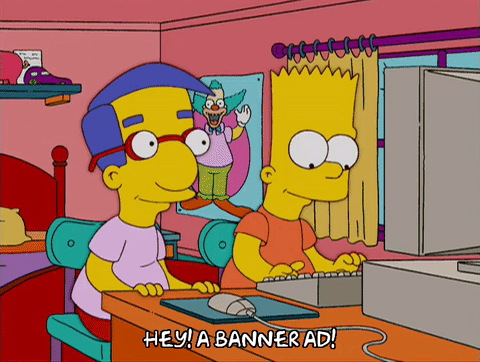
As WhatsApp explained, “Ads suck and ads suck even more on the small screen of a mobile device. We want to provide the best user experience and doing advertising will only get in the way of clean UI.”
They also said on their blog, “No one wakes up excited to see more advertising, no one goes to sleep thinking about the ads they’ll see tomorrow. We know people go to sleep excited about who they chatted with that day…We want WhatsApp to be the product that keeps you awake…and that you reach for in the morning. No one jumps up from a nap and runs to see an advertisement.”
Hiermee handhaaft WhatsApp het doel om een betrouwbare, gimmick- en frictieloze gebruikerservaring te bieden.
Finally, they figured they could charge a tiny fee directly. Which they did — for a little while, at least. 💵
WhatsApp used to have a 99 cent annual fee, but this was later killed because it wanted to reach more users in places like India and Brazil, as these users don’t necessarily have a credit card or the infrastructure in place to make payments.
While it’s a bit unclear how exactly WhatsApp is making up revenue for the lack of a subscription model, it appears that the shift toward more enterprise uses will have something to do with it (more on that in a minute).
Focus on the product, not tech for tech’s sake
That’s not to say WhatsApp’s tech isn’t great — but it definitely wasn’t an “aha!” moment or some mind-blowing technological breakthrough that created the multi-billion-dollar company.
WhatsApp essentially solved problems by using tools and tech that were already available — not by reinventing the wheel.
So, in a nutshell, the success of the product is defined mostly by the product itself, not the tech — let’s explore a few of the attributes that make the product unique.
First, a major aspect of the product, which seems simple now, is the fact that they built a messenger that connects to contacts from a phonebook. 📲
Veel andere berichtenplatforms vereisen aparte nummers of gebruikersnamen, wat de gebruikerservaring belemmert. De manier waarop WhatsApp besloot te werken was destijds baanbrekend.
Second, before WhatsApp, there was the pain point of people not knowing if someone received their message. 🤷
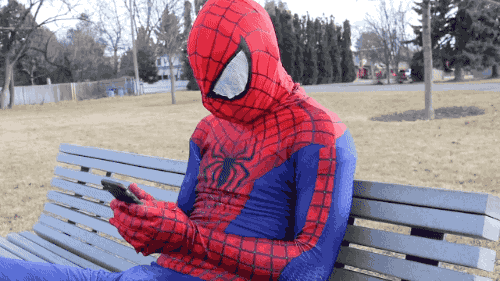
Sms kan wispelturig zijn en niet iedereen zit altijd achter zijn computer om een Skype-bericht te ontvangen. Een platform dat werkt met je telefoon was dus een inzicht voor WhatsApp dat het team hielp iets nieuws, nuttigs en betrouwbaars te bouwen.
Ten derde besefte WhatsApp al vroeg dat focussen het product veel krachtiger maakte. WhatsApp wist wat zijn klanten wilden en hield zich daaraan.
Hierdoor werd de verleiding vermeden om meerdere dingen tegelijk te doen en het kernaanbod uit het oog te verliezen.
Finally, they’ve understood the importance of immediately setting up everything in a scalable way. Their way of working has stayed virtually the same since the beginning.
Mix these aspects with the fact that they localized to different languages early on — thereby understanding the need to connect with customers globally — and you have a recipe for success. 👩🍳
WhatsApp democratized messaging, calls and video chat
Zelfs voordat WhatsApp het abonnementsgeld van 99 cent afschafte, bood het bedrijf zijn gebruikers mobiele berichtendiensten tegen de goedkoopste prijs ooit.
Aangezien gebruikers op veel plaatsen ter wereld moeten betalen per verzonden sms of mms, was (en is) WhatsApp het voor de hand liggende alternatief voor het verzenden van berichten.
Later bouwde het team nieuwe functies bovenop het bestaande berichtenplatform, zoals groepschats, locatiedeling en spraakberichten.
This means that you can call, text or video chat with any other user in the world — for free. 📞
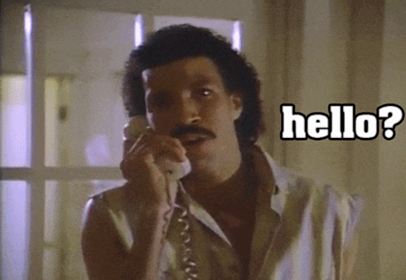
And you didn’t even need to sacrifice your personal data for this free service!
Reliable, Fast, Secure
It’s safe to say that WhatsApp is optimized for reliability — as we touched on earlier, when you send a message on WhatsApp, you know it will get there.
En de eerder genoemde end-to-end versleuteling van alle verzonden berichten toont de veiligheid nog eens extra aan.
WhatsApp voelt ook sneller dan bijvoorbeeld iMessage.
The grey check mark that appears when you send a message in WhatsApp is instantaneous — giving users the feeling of speed compared to the whoosh sound or the loading bar that is part of the iMessage experience…it just feels slower, even if it actually isn’t. ✅

Simply put: WhatsApp’s strengths are its simplicity, performance and service reliability.
Nieuwe gebruikssituaties, eindeloze mogelijkheden
WhatsApp has recently found new applications for its product — even in an enterprise context.
In september kondigde het bedrijf aan dat ze nieuwe tools aan het bouwen en testen waren voor een WhatsApp Business-product, zowel voor kleine bedrijven als een bedrijfsoplossing voor grote bedrijven.
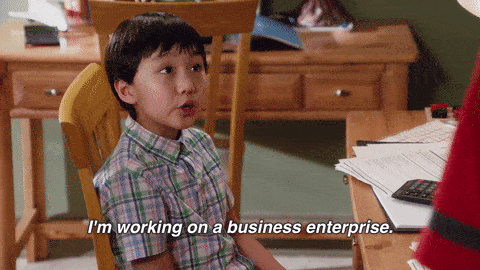
One such example of this in action is from the airline KLM, which now uses WhatsApp as a way to connect with customers regarding flight times, schedule changes and more. ✈
This tool is quite similar to the Messenger services offered through Facebook — so it will be interesting to see if WhatsApp takes off in a similar fashion (especially since this will probably be the route they take to build their revenue model).
Gebruikers van WhatsApp beginnen ook nieuwe manieren te vinden om de app te gebruiken. Een paar voorbeelden: bedrijven die de groepsfunctie gebruiken voor interne teamcommunicatie, lokale restaurants die het gebruiken als een manier voor klanten om eten te bestellen en zelfs bedrijven zoals Ace & Tate die hun klantenservice via het platform beheren.
WhatsApp goes to show that even with a simple product, the uses and possibilities can be endless. 🎉
As WhatsApp continues to grow and connect people globally, we’re excited to see where it’s headed next!
What do you love most (or dislike most) about WhatsApp? Let us know in the comments! ✨
Wil je meer Iconic-producten bekijken? Lees de hele serie hier!
We hopen dat je deze post leuk vond. Als je het leuk vond, vertel het dan verder!
Voor meer nieuws over startups, groeimarketing en verkoop:
- 22+ Beste verkooppodcasts die je moet bekijken in 2024 - 21 december 2023
- Koude oproepscripts voor echte mensen - 21 september 2023
- De 25+ beste verkooptools om uw team te helpen succesvol te zijn - 10 augustus 2023
